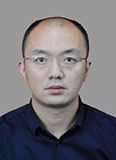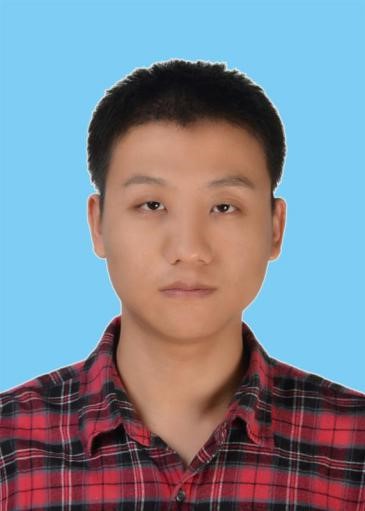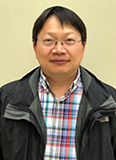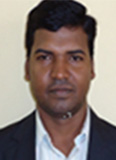
Speakers
SPEAKERS |
Speakers |
Prof. Xinhua Wang Qingdao University, China | Biography: Xinhua Wang received the Ph.D. degree in communication and information system from Shandong University, Jinan, China, in 2016. From 2019 to 2020, he was a visiting scholar with Columbia University in the City of New York and Nokia Bell Labs. Currently, he is an associate professor with the College of Electrical Engineering, Qingdao University. Research Areas: Internet of Things, massive MIMO system, cell-free massive MIMO system, compressed sensing theory, random matrix theory, and stochastic optimization theory. Title: Cellular Internet of Things Versus Cell-Free Internet of Things Abstract: With the proliferation of Internet of things (IoT) applications, the massive machine-type connections bring great challenges to traditional cellular networks, wherein cell-boundary devices with severe path-loss and inter-cell interference normally suffer from poor performance. By contrast, cell-free massive MIMO is a promising technique to support massive MTCs, since its user-centric architecture can shorten the distance between devices and access points, and boost the network coverage performance significantly. The key research topics and several promising solutions will be introduced. |
Prof. Kai Wang Qingdao University, China | Biography: He won the first prize of excellent academic paper of natural science in Liaoning Province and the second prize of excellent academic paper of natural science in Dalian City, the first prize of the fifth intelligent manufacturing innovation and entrepreneurship project, more than 10 invention patents, more than 10 utility models, and one soft book. He has presided over 8 scientific research projects, 5 teaching and research projects, and participated in more than 10 projects as the main participant. He has been awarded as an excellent reviewer of Applied Energy and Journal of Electrical Engineering, and has published more than 30 SCI and EI retrieved papers. Research Areas: state evaluation and life prediction of new energy storage devices; energy storage components; storage and conversion of new energy; distributed microgrid and energy storage; energy internet; ladder utilization of energy storage devices, etc. Title: Research on life prediction of supercapacitor based on improved long-term and short-term memory neural network Abstracts: Long short-term memory neural network optimized based on hybrid genetic algorithm is proposed to predict the remaining useful life of supercapacitors. First, determine the input variables of the deep neural network. By analyzing the structural characteristics between the electrode and the solution, and the characteristics and laws of the movement of internal charges, the energy storage mechanism of the supercapacitor is studied, and the influencing factors of the supercapacitor performance aging are obtained. The input variables of the neural network model are determined according to the influencing factors of the performance aging of the supercapacitor, in order to achieve accurate prediction of the remaining useful life of the supercapacitor. Secondly, two tests are designed to obtain supercapacitor aging data. A large amount of data is the basis of high precision for life prediction, to fully reflect the aging condition of the power supply under different running environment, this paper uses different charge and discharge strategies based on different temperatures and voltages to perform a steady-state cycle life test and Hybrid Pulse Power Characteristic test on the supercapacitors to make the measured data more real and effective. |
Prof. Daniel Quevedo Queensland University of Technology, Australia | Biography: Daniel Quevedo is Professor in Cyberphysical Systems at the School of Electrical Engineering and Robotics, Queensland University of Technology (QUT), Brisbane, Australia. His research interests are in theoretical foundations and applications of systems and control, with special emphasis on networked cyberphysical systems and on power converters. He has co-authored a book, over 250 publications in top journals and conferences, and holds two international patents. Throughout his career, he has received a number of prestigious research awards, including the 2018 IEEE Transactions on Automatic Control George S. Axelby Outstanding Paper Award. Prof. Quevedo has an extensive research network in Europe, the Americas, Asia and Australia.
Title: Bandit Algorithms for Channel Selection in Remote State Estimation Abstract: We consider a remote state estimation problem where, at each discrete time instant, a wireless sensor has several different communication channels to choose from. These channels are unreliable and introduce random packet dropouts in the communication between the sensor and the remote estimation system. To achieve satisfactory estimation performance, the best channel needs to be selected. A key difficulty of the situation at hand is that the channel dropout probabilities are unknown. We study the case where both learning of the channel reception probabilities and state estimation are carried out simultaneously. Methods for choosing the channels based on techniques for multi-armed bandits are presented and shown to ensure stability of the remote estimator. Furthermore, we define the performance notion of estimation regret, and derive bounds on how it scales with time for the considered algorithms. |
Prof. Shengxiang Yang De Montfort University, UK | Biography: Prof. Yang got his PhD degree in Control Theory and Control Engineering from Northeastern University, China in 1999. He is now a Professor of Computational Intelligence (CI) and Deputy Director of the Institute of Artificial Intelligence, School of Computer Science and Informatics, De Montfort University, UK. He has worked extensively for many years in the areas of CI methods, including evolutionary computation, artificial neural networks, data mining and data stream analysis, and their applications for real-world problems. He has over 350 publications with an H-index of 62 according to Google Scholar. His work has been supported by UK research councils, EU FP7 and Horizon 2020, and industry partners. He serves as an Associate Editor or Editorial Board Member of several international journals, including IEEE Transactions on Evolutionary Computation, IEEE Transactions on Cybernetics, Information Sciences, and Enterprise Information Systems, etc. He was the founding chair of the Task Force on Intelligent Network Systems (TF-INS, 2012-2017) and the chair of the Task Force on Evolutionary Computation in Dynamic and Uncertain Environments (ECiDUEs, 2011-2017) of the IEEE Computational Intelligence Society. He has given over 20 keynote speeches and tutorials at international conferences. Title: Swarm Intelligence for Dynamic Optimization Problems Abstract: Swarm intelligence (SI) in biology represents the property that the collective behavior of a swarm of agents that interact locally with their environment causes coherent functional global patterns to emerge. SI algorithms are optimization algorithms inspired from the SI phenomena in biology, such as ant foraging and bird flocking, and have been applied in different fields. Most SI algorithms have been developed to address stationary problems. However, many real-world problems are dynamic optimization problems (DOPs) that are subject to changes over time. DOPs have attracted a growing interest from the SI community in recent years due to the importance in the real-world applications of SI algorithms. This talk will first briefly introduce the concepts of SI and DOPs, review the enhancement strategies integrated into SI algorithms to address DOPs, and then describe several detailed case studies on SI methods for DOPs. Finally, some conclusions will be made and the future work on SI for DOPs will be briefly discussed. |
Prof. Harikrishnan Santhanam Pallavan College of Engineering, India | Biography: Prof. Harikrishnan Santhanam have been persistently making efforts in developing the newly prepared phase change materials (PCMs) using nanomaterials for low-temperature heating and cooling applications. I have been specifically considering fatty acids as the base PCMs and metal oxide nanoparticles and graphene oxide as the enhancing materials. So far, I have successfully attempted the works with different types of nanoparticles, various concentrations of nanoparticles, and different PCMs. Title: Preparation and Thermal Characteristics of Nano-based PCMs Abstract: To address the low thermal conductivity of the PCMs, nanoparticles are widely recommended to suspend in the base fluids. Different mass fractions of nanoparticles dispersed in the base PCMs. The dispersion stability of the nanofluids employed as PCMs has been clearly ascertained by means of the sedimentation photograph and particle size analyzer. The thermophysical properties of the nanofluids, like phase change temperature and latent heat, have been measured by differential scanning calorimetry. The thermal stability and reliability analyses were studied to evaluate the performance of the nanofluids for long-term operation. The effects of the concentration of nanoparticles and operating temperature of the PCMs on the viscosity of the nanofluids have been investigated. The laser flash analyzer has been used to ascertain the thermal conductivity enhancement of the nanofluids for all mass fractions of nanoparticles. |




